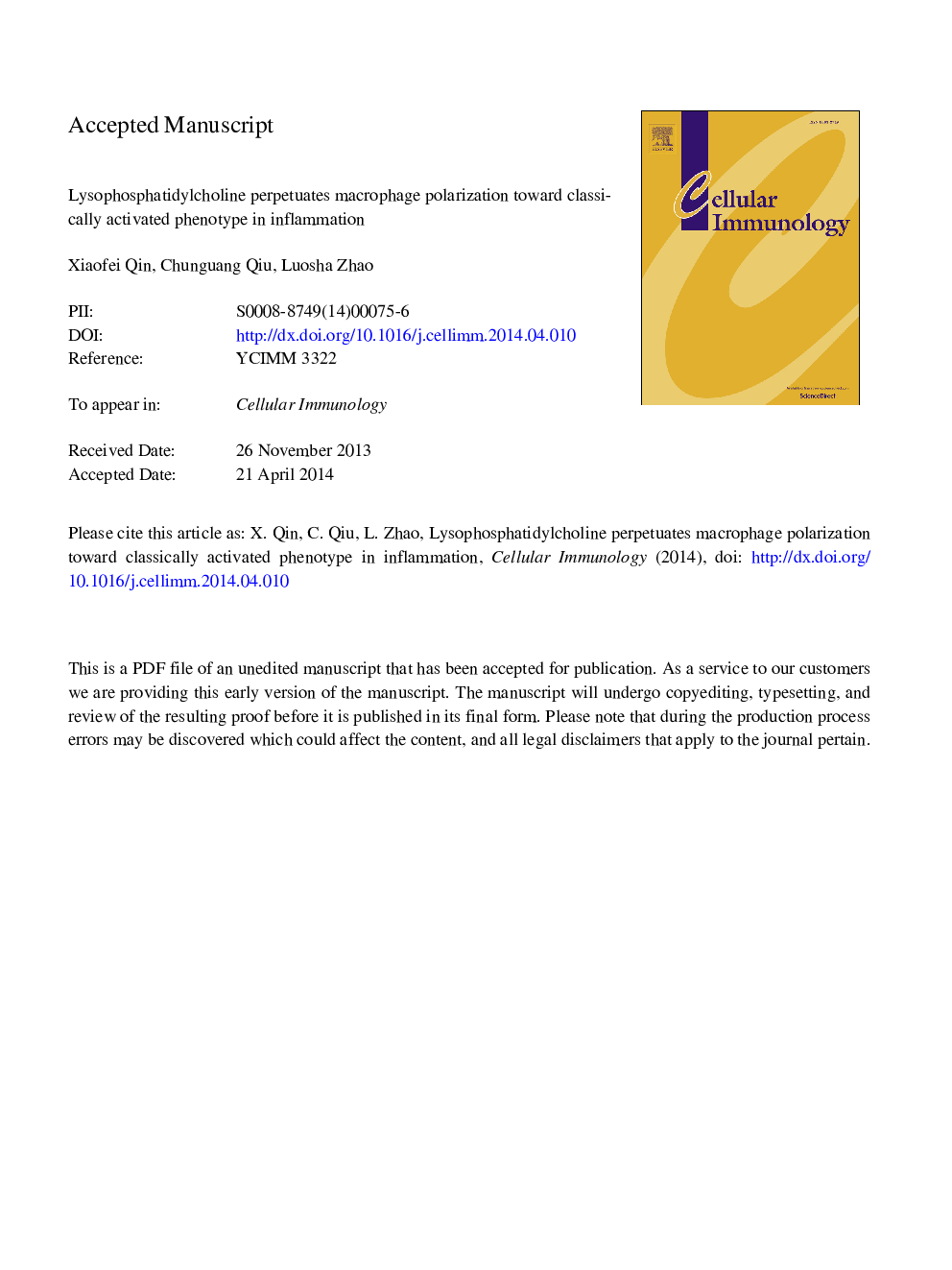| Article ID | Journal | Published Year | Pages | File Type |
|---|---|---|---|---|
| 8463898 | Cellular Immunology | 2014 | 23 Pages |
Abstract
Pro-inflammatory macrophages are involved in vascular inflammation and serve as the major effector cells in the pathophysiology of atherosclerosis. Phosphatidylcholine (PC) is a major phospholipid moiety affixed to oxidized low-density lipoprotein (oxLDL) and thought to play important roles in the development of atherosclerosis. In this study we described that a bioactive lipid derivative, lysophosphatidylcholine (lysoPC), generated from hydrolysis of the PC moiety of oxidized LDL, promoted and stabilized a strong M1 phenotype in macrophage polarization. Another derivative, 9-hydroxyoctadecadienoic acid (9-HODE), did not show the similar biological function. Blockade of G protein coupled receptor, G2A, which mediates the signal transduction of lysoPC, diminished the effects of lysoPC on the macrophage polarization toward M1 phenotype. The results provide insights into the new mechanism on how oxidized LDL participates in tissue inflammation in atherosclerosis.
Related Topics
Life Sciences
Biochemistry, Genetics and Molecular Biology
Cell Biology
Authors
Xiaofei Qin, Chunguang Qiu, Luosha Zhao,
